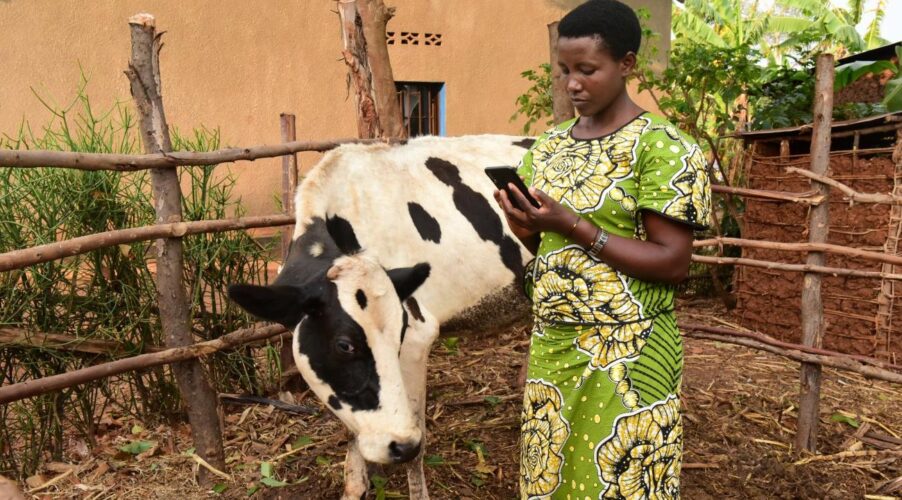Agriculture, including fisheries and forestry, is facing many challenges that stem from a range of factors, including erratic weather patterns, changing demographics, turbulence in the global economy and conflicts. These factors exert unprecedented pressure on the world’s agrifood systems. Small-scale producers in low- and middle-income countries (LMICs), particularly those in Small Islands Developing States (SIDS), are among the most vulnerable groups.
Without sustainable agricultural production, many countries are unable to provide adequate food for their populations, and the Sustainable Development Goals, specifically the goal of creating a world free of hunger by 2030, will be difficult to achieve. There is an urgent need to empower rural populations, especially youth and women, who predominantly depend on agriculture for their livelihood.
Youth and women at the centre of agrifood system transformation
Youth and women must be prioritized to meet the challenges agrifood systems face and boost agricultural productivity. Solutions to current problems should embrace science, technology, and innovation and place youth and women at the centre of agrifood transformation. It is notable that 87 per cent of the world’s youth live in developing countries, and 80 per cent of them are engaged in informal employment such as family farming.
The youth are approximately three times more likely to be unemployed than adults, and young women are affected to an even greater extent than young men. This sector also faces many additional barriers, such as access to land, credit, and rights, which has resulted in many young people shunning agriculture and moving to urban areas, which appear more attractive.
Digital agriculture could promote greater inclusion of youth and women
Digitalization is rapidly transforming economies around the world, and youth are greatly influenced by digital solutions and services. Digitalization is set to influence the way agrifood systems operate. However, the digital transformation process is uneven in geographic and socioeconomic terms, and in many areas, youth and women have restricted access to information and communications technologies (ICTs), including smartphones and the Internet.
In order to correct the disparities and help youth and women, there is an urgent need to improve access to and knowledge of digital innovations. To address this, at the launch of a digital skills programme, the then FAO Representative for Rwanda, Gualbert Gbehounou, said, “Youth like innovations, new ways of doing things, using electronic gadgets, interacting online. Actually, they like a business that keeps them connected. We need to make sure that we introduce all the digital approaches they prefer along the food chain, from farm to table.”
FAO prioritizes digital technology access to youth and women
FAO is emphasizing digitalization and innovation to ensure that agrifood systems are attractive to youth and women and that they possess the necessary skills and knowledge to allow them to use emerging technologies in agriculture. For example, FAO has developed, with partners, a range of apps that can be installed on mobile phones, tablets and computers that allow young farmers in Rwanda to monitor and improve their farm operations, sales and purchases.
FAO is also currently collaborating with Wageningen University & Research in the Netherlands to explore uses of blockchain, for instance to monitor child labour issues, especially in the cocoa value chain. Furthermore, FAO, in collaboration with the Rwanda Development Board, launched a project to enhance digital skills and innovation capabilities to foster agri-preneurship among youth and women.
“This project is addressing, first of all, the critical challenge we are having in terms of digital skills, but secondly, it’s also coming to target more than 50 per cent of our population, which is women and youth. They are very active, they are contributing a lot in the agriculture sector and with them being educated on digital-related aspects, we believe that it is going to bring a very big change in the agriculture sector and Rwanda in general,” said Diane Sayinzoga, Head of Special Economic Zones and the Export Facilitation Department at the Rwanda Development Board.
Similarly, FAO seeks to promote an innovation culture among youth, and ensure they participate in agrifood system transformation. For example, FAO co-organized the Digital Agriculture Bootcamp in collaboration with Zhejiang University to enhance digital agriculture innovation and entrepreneurship skills among young leaders and enable them to address current and future challenges in agriculture, such as low rural incomes, sustainable agricultural productivity, food security, gender equality and rural poverty.
In conclusion, digitalization promises increased opportunities for youth and women. It promises to create more jobs and improve the availability of jobs along the value chain, and emerging technologies could inspire the younger generation to take advantage of employment and agripreneurship opportunities that agrifood systems offer. Digitalization can also help lower production and transactional costs, generate employment and demonstrate that agriculture can represent a viable and profitable business opportunity, especially for youth and women.

